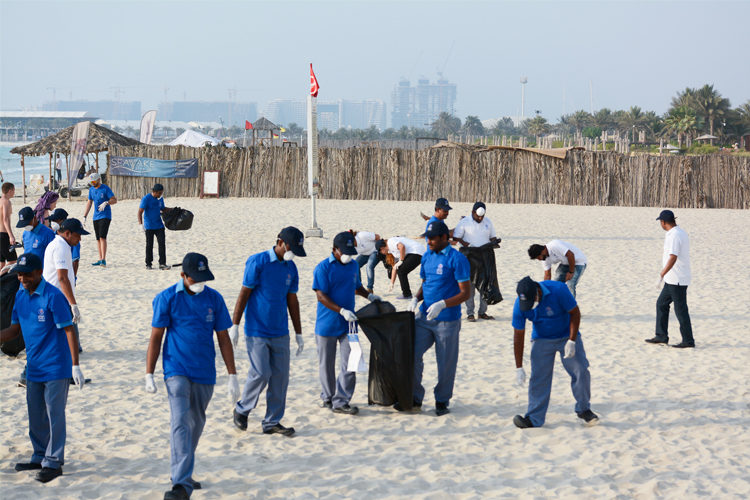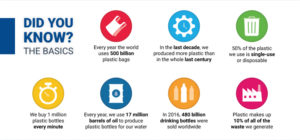
“Beat Plastic Pollution”, the theme for World Environment Day 2018, is a call to action for all of us to come together to combat one of the great environmental challenges of our time. The theme invites us all to consider how we can make changes in our everyday lives to reduce the heavy burden of plastic pollution on our natural places, our wildlife – and our own health. While plastic has many valuable uses, we have become over reliant on single-use or disposable plastic – with severe environmental consequences.
To beat plastic pollution, we need to entirely rethink our approach to designing, producing and using plastic products. This World Environment Day, our goal should be to inspire the kind of solutions that lead to sustainable behavior change upstream.
Global Plastic Pollution by the Numbers:

World Environment Day will seek to influence change in four key areas:
Reducing Single-Use Plastics
50% of the consumer plastics are designed to be used only once, providing a momentary convenience before being discarded. Eliminating single-use plastics, both from design chains to our consumer habits is a critical first step to beat plastic pollution.
Improving Waste Management
Nearly one third of the plastics we use escape our collection systems. Once in the environment, plastics don’t go away, they simply get smaller and smaller, last a century or more and increasingly find their way into our food chain. Waste management and recycling schemes are essential to a new plastics economy.
Phasing Out Microplastics
Recent studies show that over 90% of bottled water and even 83% of tap water contains microplastic particles. No one is sure what that means for human health, but trace amounts are turning up in our blood, stomachs, and lungs with increasing regularity. Humans add to the problem with micro-beads from beauty products and other non-recoverable materials.
Promoting Research into Alternatives
Alternative solutions to oil-based plastics are limited and difficult to scale. This doesn’t need to be the case. Further research is needed to make sustainable plastic alternatives both economically viable and widely available.
We as a responsible participant, urgently needs to rethink the way we manufacture, use and manage plastic. Tackling one of the biggest environmental scourges of our time will require administrations to regulate, businesses to innovate and individuals to act.
